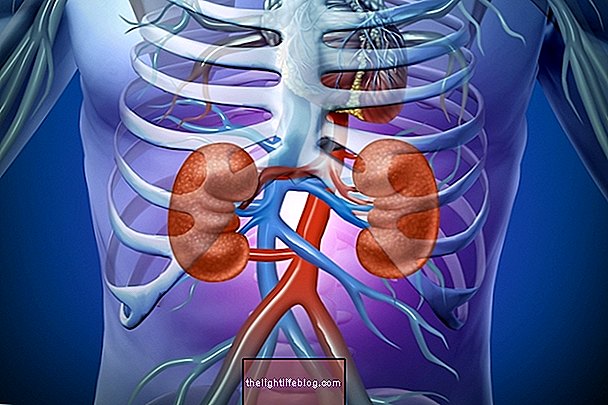Perfectionism is a type of behavior characterized by the desire to perform all tasks perfectly, not accepting errors or results unsatisfactory to their standard. The perfectionist person usually has a high standard of charging about himself and others.
The perfectionism can be classified in:
- Normal, adaptive or healthy, when the person has the motivation and determination to perform the tasks well done;
- Neurotic, maladaptive, or harmful, in which the person has a very high standard of perfection, and it is often necessary to perform the same task several times because he thinks he is not perfect and can generate frustration.
Although the perfectionist does not accept mistakes, and when they do, they feel frustrated, incapable, distressed or depressed, being a perfectionist is not necessarily a bad thing. By always wanting to perform tasks with perfection, the perfectionist is usually very focused, disciplined and determined, which are important characteristics for personal and professional life.

Main features
Perfectionists usually look well to the details, are extremely organized and focused, seeking to accomplish the tasks with the least possibility of error. These characteristics are considered normal and even healthy for all people, because they interfere positively personal and professional life. However, when these traits are accompanied with high billing standards and exaggerated self-criticism, it can generate feelings of frustration and depression.
Other characteristics of the perfectionist are:
- Much responsibility and determination;
- High level of demand with and with others;
- They do not admit of mistakes and failures, having difficulties to accept that they erred and to learn from this, besides feeling guilty and shame;
- They find it difficult to work in groups, since they can not believe in the capacity of the other;
- They always feel that something is missing, never being satisfied with the result;
- She does not accept criticism very well, but she often criticizes others to show that she is better.
Perfectionists are too afraid to fail, so they constantly worry about things and set a very high billing pattern, so when there is any fault or error, even a small one, they end up frustrated and feeling incapacitated .
Types of Perfectionism
Besides classification in healthy or harmful, perfectionism can also be classified according to the factors that influenced its development:
- Personal perfectionism, in which the person charges a lot, showing a behavior of excessive concern so that everything is perfect. This kind of perfectionism concerns the way one sees oneself, one's exaggerated self-criticism;
- Social perfectionism, which is triggered by the fear of how it will be interpreted and recognized by people and the fear of failing and being rejected, being this kind of perfectionism often triggered in children who have been heavily charged, praised or rejected, a way of the child to be accepted by the parents, for example. Moreover, in social perfectionism, one has difficulty speaking or interacting with others about their fears or insecurities precisely because of the fear of judgment.
- Directed perfectionism, in which the person has a lot of expectation not only about himself, but also about others, which makes it difficult to work in teams and adapt them to other situations, for example.
Perfectionism can also be a consequence of psychological disorders such as anxiety and obsessive compulsive disorder (OCD), for example.
When does perfectionism become a problem?
Perfectionism can become a problem when performing any task becomes stressful and stressful due to the high collection pattern, excessive concern with details and fear of failure. Also, being unhappy with results can lead to feelings of distress, frustration, anxiety, and even depression, which in some cases can lead to suicidal thoughts.
Perfectionists tend to be self-critical, which can be very damaging, since they can not assess the positives, only the negatives, resulting in mood disorders. This does not only reflect day-to-day tasks, but also physical aspects, which can result in eating disorders, for example, since people think they always have something to improve in body or appearance without the positive aspects.






















